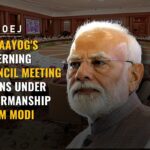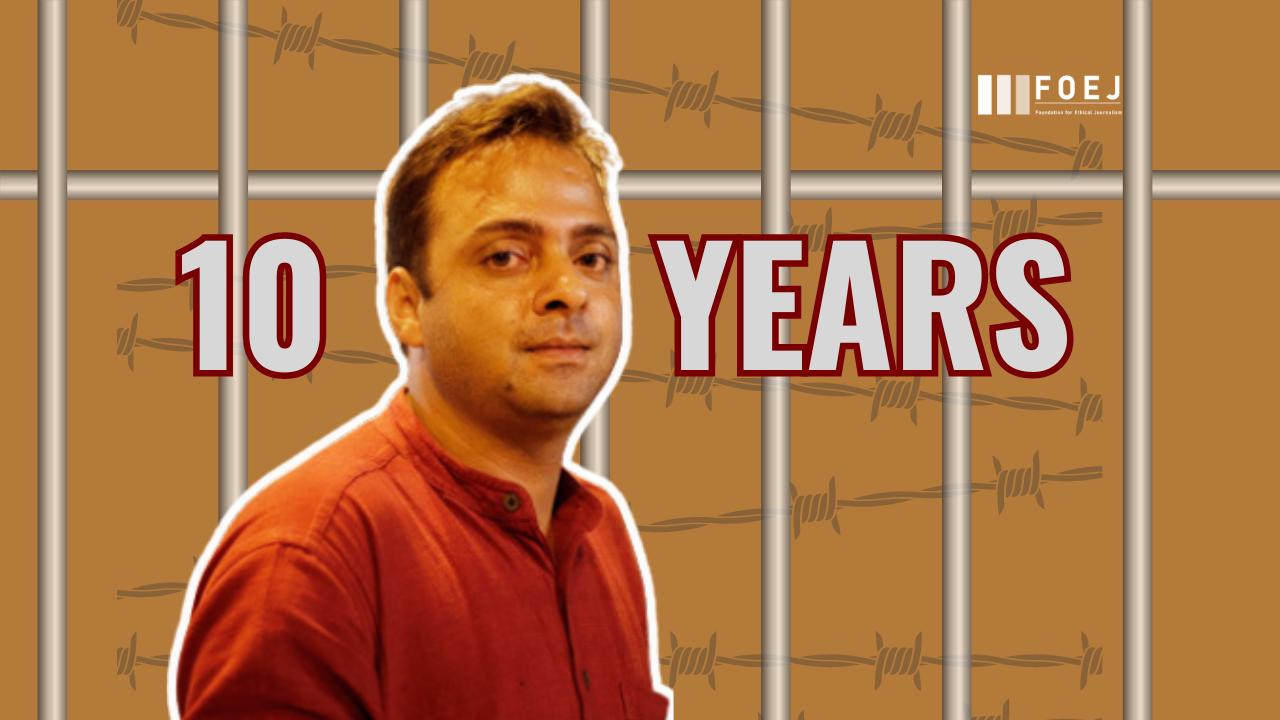On March 18, 2024, Campaign Against State Repression (CASR) celebrated the ‘International Day of Solidarity with Political Prisoners’ by holding a public gathering and press conference titled “Life in Anda Cell: Political Prisoners and Wrongful Incarcerations” at the Press Club of India, Delhi. CASR is a joint platform of 35+ organisations.
This programme commemorated the event and prison experience of political activist Hem Mishra. Hem Mishra was a student of Jawaharlal Nehru University when he was arrested in 2013 for an alleged Maoist link along with Saibaba and four others. On March 5, the Bombay High Court acquitted all six as there was no proper evidence against them.
The speakers of the programme were Hem Mishra, Dr. Nandita Narain, Dr. Saroj Giri, a member of the Forum Against Corporatization and Militarization (FACAM), veteran lawyer and activist Prashant Bhushan, and democratic rights activist Devika Menon.
Dr. Saroj Giri, while initiating the conference, said that activists like Hem Mishra were arrested because they raised their voices against corporate looting of natural resources and oppression of Adivasis and workers.
DU professor and ex-Delhi University Teachers Union (DUTA) President Dr. Nandita Narain asserted that “we are students, scholars, and educators. Reading and carrying Maoist literature is no crime but our right, for we must study all thoughts, ideologies, and philosophies and come to our understanding.”
The cases of cultural activist Hem Mishra, Delhi University professor Dr. GN Saibaba, journalist Prashant Rahi, and Adivasi activists Vijay Tirki, Mahesh Tirki, and Pandu Narote have shown how raising voices for the cause of Jal, Jungle, and Zameen has taken so many years of their lives. Pandu Narote even died in jail, and the medical emergencies and disabilities of activists were ignored.
Case Took Their 10 Years
Hem Mishra said that the police grabbed him in plain clothes and tortured him for 3 days; nobody knew about his whereabouts. “People keep asking me, do you still have faith in the justice system? I want them to ask the judges how they can wrongfully keep a student in prison for 10 years studying at a premier university and still claim to dispense justice,” he added.
“I wanted to visit an activist working on Adivasis issues to understand the issues on the ground, beyond my understanding as a student. This dream cost me 10 years,” Hem said. He further added that what the police claimed was Maoist literature was study material for the JRF exam and was publicly circulated in Outlook magazine.
“The police grabbed me in plain clothes and tortured me for 3 days, letting nobody know of my whereabouts as they kept asking me to identify various people as Maoists.”
Hem Mishra
“People keep asking me, do you still have faith in the justice system? I want them to ask the judges, How can they wrongfully keep a student in prison for 10 years studying at a premier university and still claim to dispense justice?” he implored. Even his lawyers were not spared, with their offices being raided by the police too, and the former lawyer in his case, Surendra Gadling of the Indian Association for People’s Lawyers (IAPL), himself being arrested under the charges of being a Maoist!
Hem Mishra talked further about how he was continuously moved from one jail to another, making lawyers inaccessible to him and draining his family’s limited finances by forcing them to find new lawyers in different jurisdictions. Inside the closed anda cell’s spartan conditions, where political prisoners are often kept in isolation, even the jail staff appealed to the police authorities and judges to remove Hem out of the anda cell, but it fell upon deaf ears.
He discussed how the plight in prison compelled him to lead a hunger strike against the brutal conditions for all prisoners and the pending court dates.
“So many of my fellow inmates died without medical treatment, like Pandu Narote. It is against this apathy that we went on strike.” He concluded his discussion by saying, “It is not about just the six of us in my case. It is about all political prisoners. As long as the fight for Jal-Jangal-jameen remains, as long as the fight of Dalits, Adivasis, workers, peasants, and oppressed nationalities remains, as long as the question of creating a better world for all people and a better state for all people remains, the fight of all political prisoners will rage on. At the end of the day, I am a bard who sings the songs of the people, and I will continue to echo their cries. I am out of prison, but as long as all other political prisoners like Rona Wilson, Surendra Gadling, and Sudhir Dhawale are inside prison, I feel I am only out of a smaller cage into a bigger one.”
UAPA Law Used Against the Accused
Veteran lawyer and activist Prashant Bhushan addressed the press and highlighted that “political prisoners are stuck in this situation due to the draconian UAPA law being used against them where bail becomes an exception and jail becomes the rule, even when one is not guilty.” He also elaborated that agencies like the National Investigation Agency (NIA) and Enforcement Directorate (ED) have been given extra-legal impunity under the current government to criminally loot the country and file fabricated cases against activists who fight against all this.
Away from home
“The government claims that prisoners have the right to meet their families and loved ones; for this, they have set up an ‘e-mulaqaat’ video conferencing system. But political prisoners were continually denied it. I lived on my books and reading material in prison, which they would randomly seize anytime any issue happened in the prison. It is against this that we went on a hunger strike.”
The parents of Hem Mishra shared their views emotionally. K.D. Mishra, father of Hem Mishra, discussed the problems faced by his son and the whole family during the ordeal of his false incarceration. He added that his disability was ignored and treatment was neglected. Hem has a disability that restricts the usage of his hand, and he couldn’t get the proper treatment at the right time as getting the medicine for him was very difficult in jail.
These activists, even after 10 years, have not forgotten the cause of their fight. They believe that the fight for tribal life and natural resources should continue. He concluded by saying, “It is not about just the six of us in my case. It is about all political prisoners. As long as the fight for Jal-Jungle-Zameen remains, as long as the fight for Dalits, Adivasis, workers, peasants, and oppressed nationalities remains, and as long as the question of creating a better world for all people and a better state for all people remains, the fight of all political prisoners will rage on.









